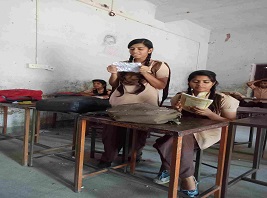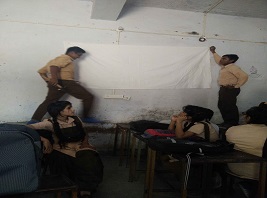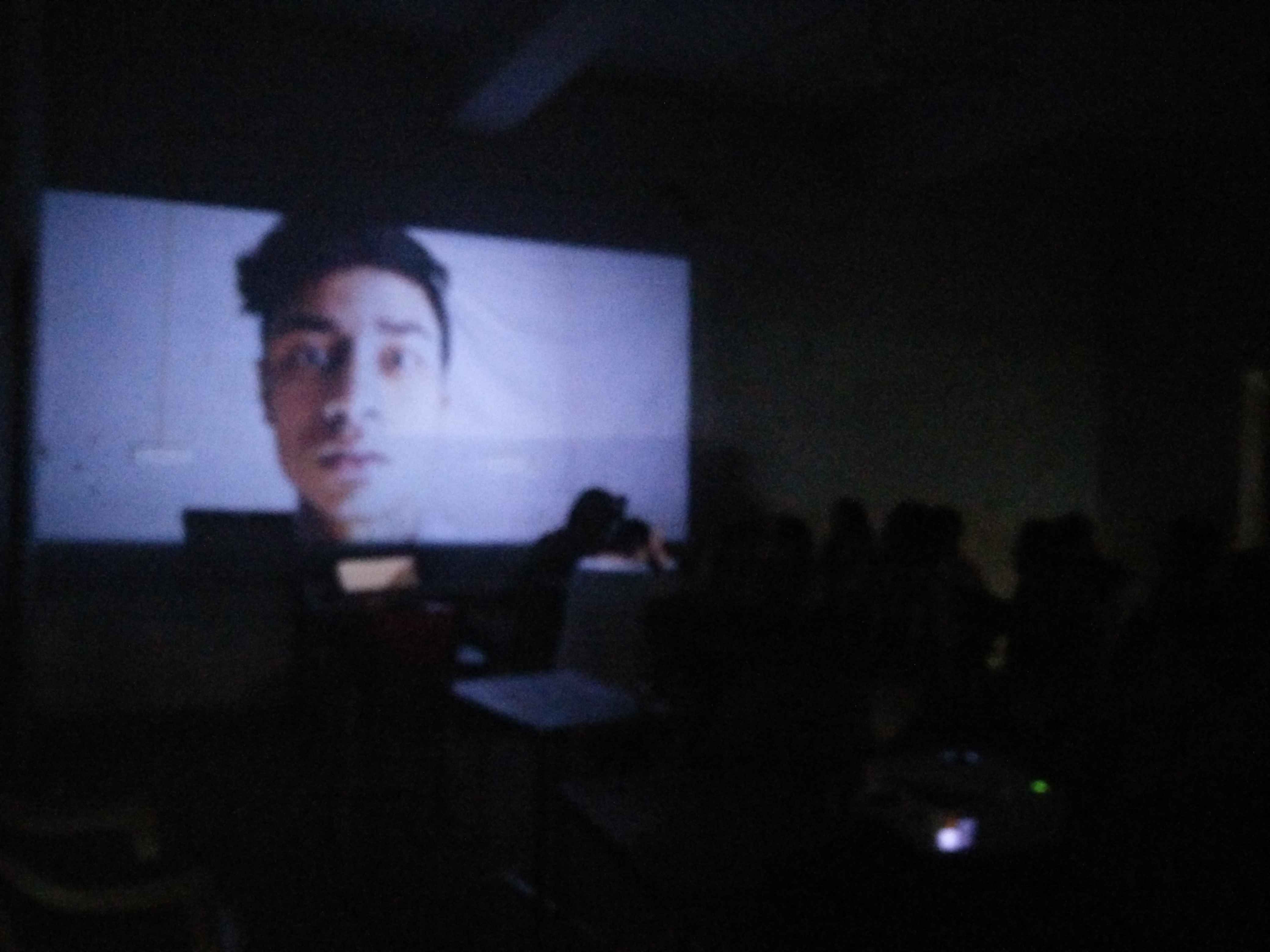Session on Bullying at Saheed Major Digvijay Singh Sumal Govt. Sr. Sec. School in Khatipura, Parivahan Nagar, Jaipur, Rajasthan, November, 2019
The Issue- Bullying
Bullying is an aggressive behavior that is intentional and that involves an imbalance of power or strength. Typically, it is repeated over time. A child who is being bullied, has a hard time defending him or herself. Bullying can take many forms, such as hitting or punching (physical bullying); teasing or name calling (verbal bullying); intimidation using gestures or social exclusion (nonverbal bullying or emotional bullying); and sending insulting messages by e-mail (cyber bullying).
- Stresses of being bullied can interfere with student's engagement and learning in school.
- Children and youth who are bullied are more likely than other children to be depressed, lonely, anxious, have low self-esteem, feel unwell and think about suicide.
- Students who are bullied may fear going to school, using the bathroom, and riding on the school bus.
- Research shows that bullying can be a sign of other serious antisocial or violent behavior. Children and youth who frequently bully their peers are more likely than others to get into frequent fights, be injured in a fight, vandalize or steal property, drink alcohol, smoke, be truant from school, drop out of school, and carry a weapon.
- Bullying also has an impact on other students at school who are bystanders to bullying. Bullying creates a climate of fear and disrespect in schools and has a negative impact on student learning.
Pre-session assessment
Questions with an Individual:
Do you feel safe coming to school? Yes, I feel safe coming to school. What is the best thing you like about your school? I like my teachers and friends in school. Have you ever received comments about your looks that you didn't like? No, I have never received comments about my looks that I didn't like. Do you make fun of others with your group? Yes, I do that normally, but just for fun. My intention is not to hurt them. Have people made fun of you because of your financial situation? No, no one has made fun of me because of my financial condition. Have you ever felt excluded or not part of your class group? No, I have never felt excluded or not part of my class group. Has someone spread rumors about you? Yes, someone has spread rumors about me. I got angry about it and went to the principal to say that I didn't want to be in this school anymore. Has a classmate ever forced you to do something that you don't like? Yes, some boys in my class group forced me to become friends with them. Has someone purposefully destroyed your things just for fun? Yes, my friend tore pages from her books just for fun. Have you ever been purposefully excluded from a group? No, nobody has done that to me. But sometimes I purposefully remove people from my WhatsApp group. Have you been teased because of your name? Yes, my friends tease me because my name is Komal and I am a boy. They ask me why I have a name like a girl, but it doesn't hurt me. Do you feel protected in the classroom? Yes, I feel protected in the classroom because all my classmates are my friends. Have you been teased because of your shy nature? No, nobody has teased me because of my shy nature.
Questions with a Group:
What is your understanding of the word "bully"? We don't have any knowledge about this word. What do you think about kids who bully others, according to your perception? Those types of kids have big hair, stylish looks, are generally involved in wrong activities, are mannerless, have no fear, don't like to study, and are powerful and healthy. Why do you think some kids are bullied by others, according to your perception? Those kids who are bullied by others are shy in nature, simple, studious, fearful, and serious. Why do you think someone would join a bullying group? Some students responded that they would join a bullying group because they want to be powerful. Other students answered that they would join the group because if they don't, they will also face the same bullying problem. Is bullying different for boys and girls? Yes, girls face less physical bullying compared to boys, and girls face more verbal and social bullying.
Activity conducted during the session
Photo Analysis Activity:
Photo no. 1 and its analysis by students: The students observed that the girl in the photo appears sad and isolated, as if she has no friends and stays away from people. They suggest that when she tries to talk to someone, nobody responds, leaving her feeling lonely and ignored. Photo no. 2 and its analysis by students: The students noted that two boys in the photo are teasing and bullying another boy. They are trying to assert their power over him and make fun of him. The boy being bullied is unable to stand up to them, and they take advantage of his vulnerability. Photo no. 3 and its analysis by students: According to the students, the girl in the photo is away from her family for her studies and is feeling homesick. She appears to be crying while looking at a photo of her family on her mobile phone. Photo no. 4 and its analysis by students: The students suggested two possibilities for the scenario in the photo. Either the girl's friend is making fun of her, causing her to cry, or the girl is already upset, and her friend is trying to cheer her up. Photo no. 5 and its analysis by students: The students observed that the photo captures a senior student bullying a junior. The senior student is beating up the junior and showing off his power to impress other students. The onlookers are laughing while the junior boy is crying and struggling to cope with the situation. Photo no. 6 and its analysis by students: According to the students, three groups of friends in the photo are planning to tease and irritate the kid standing next to them. The kid looks sad and angry, anticipating the upcoming harassment.
Movie screening:
Aasha - An Anti-Bullying Film - https://youtu.be/F2aKZgGqeHw This silent movie portrays the story of students who were friends but start bullying one of their friends in various ways, causing the boy to become depressed and sad. Stop Cyber Bullying - https://youtu.be/hk3LCAfq330 Cyber bullying is the use of technology, such as cell phones, instant messaging, e-mail, chat rooms, or social networking sites, to harass, threaten, or intimidate someone. Children are often the perpetrators of cyber bullying, as they have early access to these technologies. The anonymity provided by using pseudonyms makes it difficult to trace the source and can lead to more aggressive behavior. Strain - An Anti-Bullying Short Film - https://youtu.be/tXI79v0l-QE This 11-minute silent video is a powerful representation of the fallout between two best friends when one of them joins a dangerous clique. The childhood friends (played by Michelle Page and Cali Fredrich) face an emotional turning point when only one is selected to join the popular clique in high school (played by Francia Raisa). The friendship tries to survive in secret, but on the night of the big Spring Formal, loyalties are tested and ties are severed, leading to devastating consequences. Anti-Bullying Animated Movie - https://youtu.be/YyDJafzuUK4This video was created by a student at Veterans Memorial High School. It showcases the message that bullying can be stopped.
Post session assessment
Question and Answer Session:
Why do you think most students don't complain to anyone? Students answered that most students neglect things that hurt them and fear being bullied more. They may also feel anxious about speaking out and seek to avoid further attention. Do you think the earlier comments about people who bully others are different from the students' answers? Students answered that there may be some differences, but some of the points such as being fashionable, powerful, and fearless, may still hold true for people who bully others. What do people who have been bullied have to face in their lives? Students answered that people who have been bullied may become withdrawn and lose confidence in themselves. They may struggle to connect with others and may suffer from anxiety and depression. What are the most common things that we neglect that hurt others the most? Students answered that we often neglect other people's feelings and hurt them through our actions. In the movie "Strain," do you think the friend was wrong? Students answered that the friend was not necessarily wrong; she may have simply not wanted to be associated with the protagonist, as they feared being bullied themselves. What did you learn from these movies? Students learned the importance of not engaging in activities that hurt others and the importance of speaking out against bullying and other harmful behaviors.






